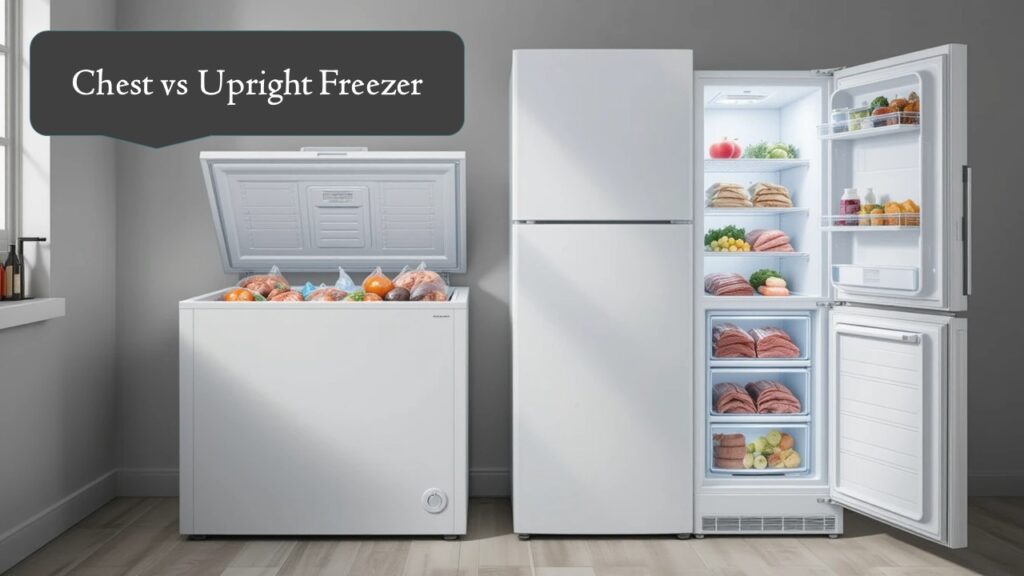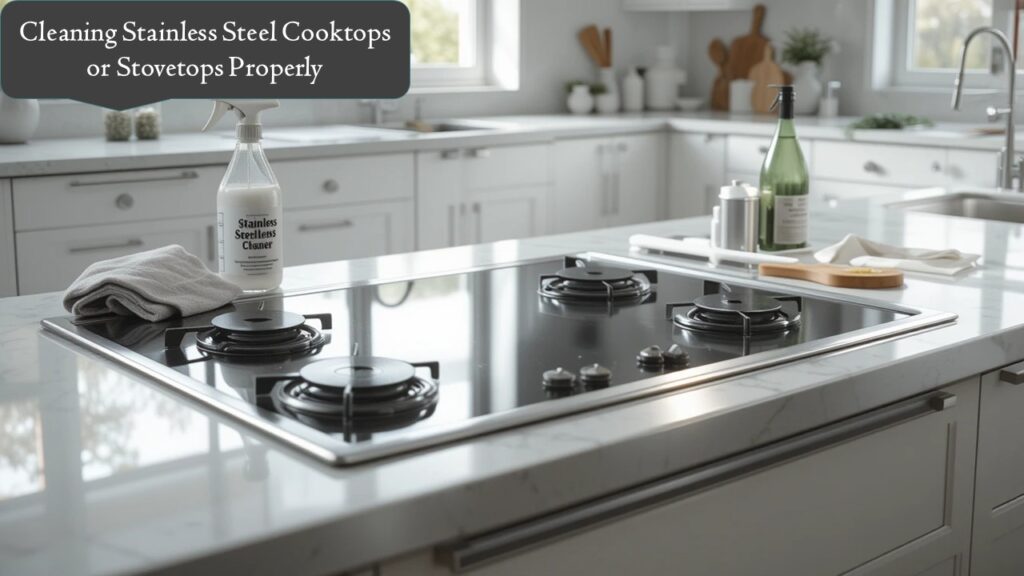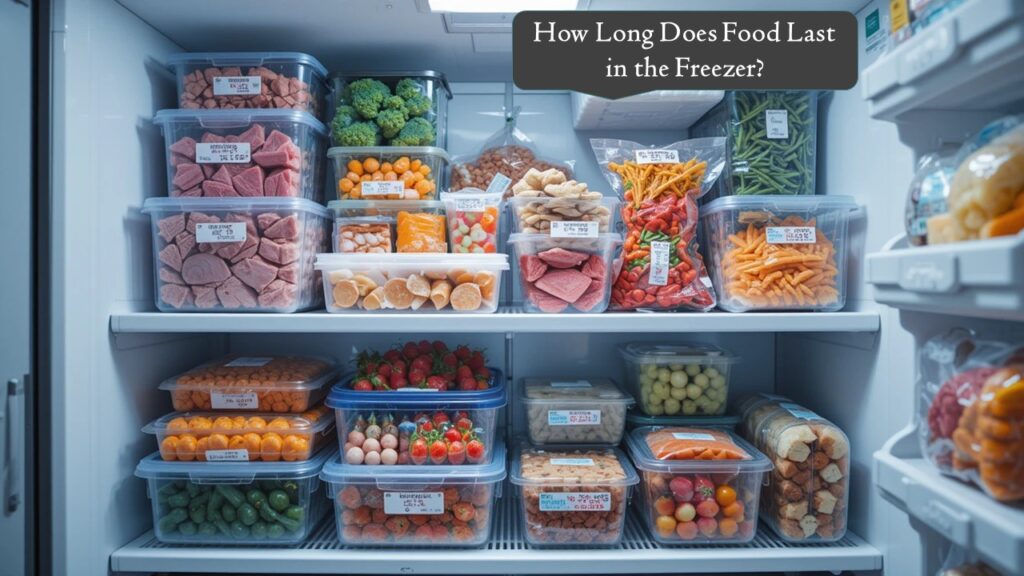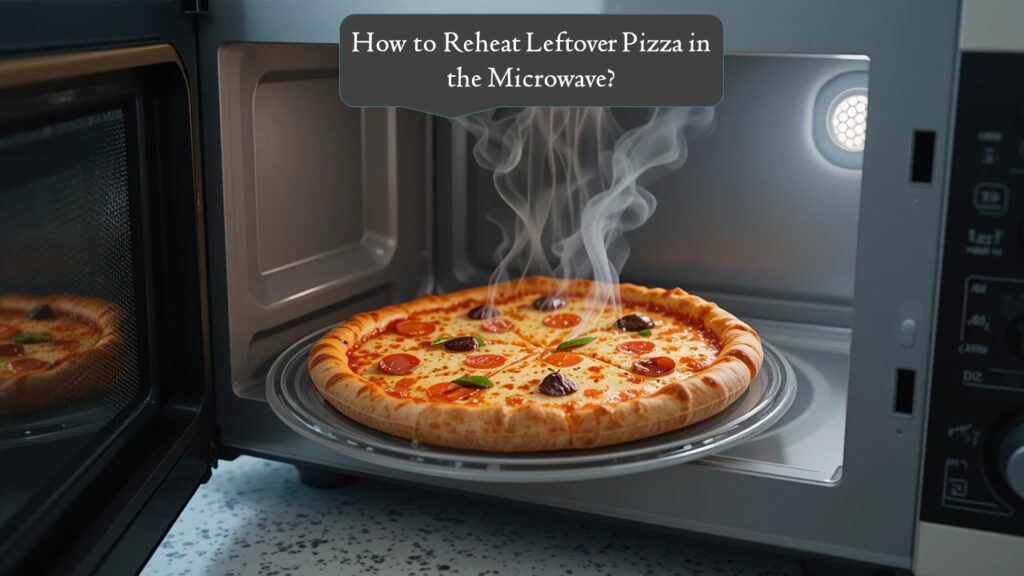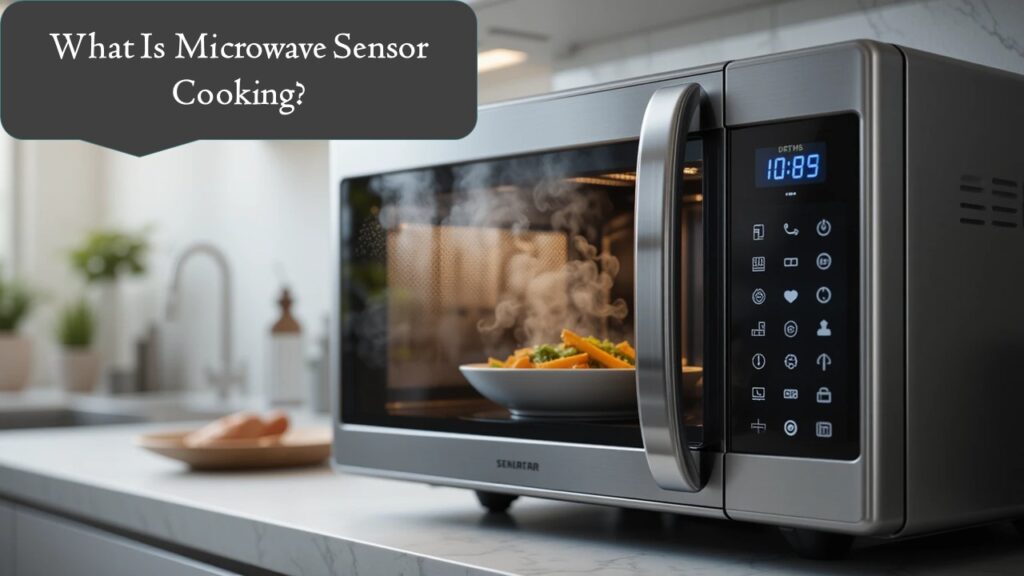When it comes to freezing and storing your food long-term, a dedicated freezer can make all the difference. If you’re tired of cramming your fridge’s freezer section with frozen meals, meat, and leftovers, investing in a standalone freezer is a great solution. But here’s the big question: should you get a chest freezer or an upright freezer?
Both freezers have unique designs and benefits, and the right choice depends on your storage needs, kitchen space, and lifestyle. In this detailed guide, we’ll compare chest freezers vs upright freezers, covering their features, advantages, disadvantages, and best use cases so you can make a confident choice.
What is a Chest Freezer?
A chest freezer is a deep, box-shaped freezer with a hinged lid that opens from the top. These freezers typically sit horizontally and are designed to hold a large volume of frozen goods. They’re ideal for families or individuals who need maximum storage for bulk purchases, large cuts of meat, or homemade meals.
Because of their design, chest freezers are often more energy-efficient and can keep food frozen longer during power outages.
Pros of a Chest Freezer
- More Storage Space
Chest freezers typically offer more usable storage space than upright models because they don’t require shelving. This makes them ideal for storing large or oddly shaped items, like turkeys or bulk meat packs. - Better Energy Efficiency
Cold air sinks, so when you open the top lid, less cold air escapes compared to an upright freezer. This design means chest freezers generally use less energy. - Longer Food Preservation During Outages
Chest freezers are well-insulated and can keep food frozen for 2-3 days during a power outage if kept closed. - More Affordable
On average, chest freezers are less expensive to purchase upfront than upright freezers of the same size. - Quiet Operation
Chest freezers tend to operate more quietly, making them a good choice for basements or garages.
Cons of a Chest Freezer
- Takes Up More Floor Space
Because they are wide and horizontal, chest freezers need more floor space, which might be a challenge in smaller homes or apartments. - Harder to Organize
Without shelves, food can get piled up, making it harder to access items at the bottom. Many models include baskets, but organization can still be tricky. - Manual Defrosting
Most chest freezers don’t have an auto-defrost feature, meaning you’ll need to manually defrost them a few times a year.
What is an Upright Freezer?
An upright freezer looks like a refrigerator, with a front-opening door and vertical shelves inside. These models are designed for convenience and organization, making it easy to access and see your frozen items at a glance.
Upright freezers are a great choice if you’re looking for something that fits into a smaller space while still offering plenty of storage.
Pros of an Upright Freezer:
- Easy Organization
Upright freezers come with multiple shelves, door bins, and drawers, making it easy to separate and locate frozen goods. - Takes Up Less Floor Space
Their vertical design makes upright freezers ideal for small kitchens, utility rooms, or garages with limited space. - Convenient Access
You won’t need to bend over or dig through layers of food, making upright freezers easier on your back. - Frost-Free Options
Many upright models come with automatic defrost systems, saving you time and effort. - Better Visibility
With shelves and compartments, you can see all your food at a glance, reducing the risk of items getting lost or forgotten.
Cons of an Upright Freezer:
- Higher Energy Consumption
Upright freezers lose more cold air when the door is opened, meaning they use slightly more electricity. - More Expensive
Upright freezers tend to have a higher upfront cost compared to chest freezers of similar capacity. - Less Storage Space
The shelving system reduces total usable space, making it harder to store large items like whole animals or oversized containers. - Shorter Cold Retention
In the event of a power outage, upright freezers can’t keep food frozen as long as chest freezers.
Chest vs Upright Freezer: Feature Comparison Table
| Feature | Chest Freezer | Upright Freezer |
| Design | Horizontal, lid opens from top | Vertical, door opens forward |
| Storage Capacity | Larger usable space | Less usable space |
| Organization | Harder, fewer compartments | Easy, with shelves and bins |
| Energy Efficiency | More energy-efficient | Less energy-efficient |
| Defrosting | Manual defrost | Frost-free options available |
| Price | More affordable | More expensive |
| Floor Space Needed | Requires more floor space | Compact footprint |
| Power Outage Performance | Keeps food frozen longer | Shorter cold retention |
| Best For | Bulk storage, large families | Easy access, small homes |
Which Freezer is Right for You?
Choosing between a chest freezer and an upright freezer depends on your household needs, available space, and budget. Here’s a quick guide to help:
- Choose a Chest Freezer if:
- You buy food in bulk or hunt/fish and need to store large cuts of meat.
- You have a garage, basement, or extra space for a large appliance.
- Energy efficiency and long cold retention are priorities.
- Choose an Upright Freezer if:
- You want quick access to food without digging through layers.
- You live in an apartment or smaller home with limited floor space.
- You prefer low-maintenance appliances with automatic defrosting.
Tips for Freezer Maintenance:
Regardless of which freezer you choose, here are a few tips to keep it running efficiently:
- Defrost Regularly (If Manual): Prevent ice buildup to maintain storage space and efficiency.
- Keep It Full: A well-stocked freezer retains cold better, saving energy.
- Label and Organize Food: Whether using bins in a chest freezer or shelves in an upright freezer, labeling items prevents waste.
- Clean the Coils: Dusty coils can make your freezer work harder, so clean them every 6–12 months.
- Check the Seal: Ensure the door or lid seal is tight to avoid cold air leaks.
Final Thoughts:
When it comes to chest freezers vs upright freezers, there’s no one-size-fits-all answer. If you value storage capacity, energy efficiency, and affordability, a chest freezer is likely your best bet. On the other hand, if organization, convenience, and space-saving design matter most, an upright freezer is a smarter choice.
Ultimately, your decision should be based on how much food you store, where you plan to place the appliance, and how you prefer to access your frozen goods. Either way, both options are excellent for keeping your meals, meat, and groceries fresh for months on end.

